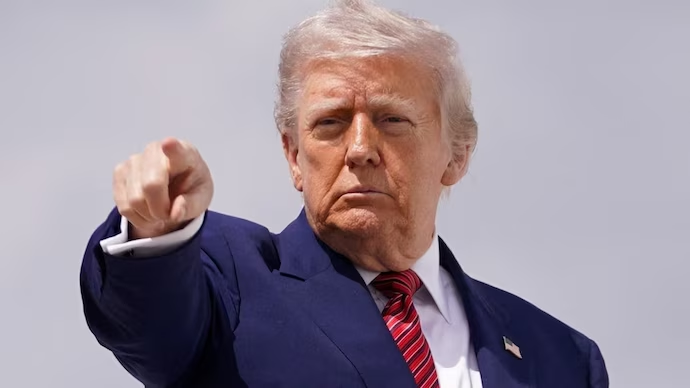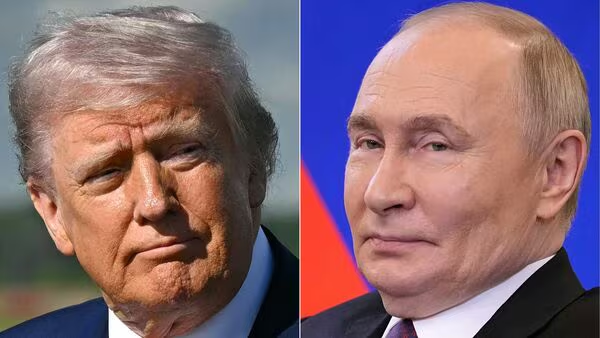Trump’s 50% Steel and Aluminum Tariffs: A Bold Move with Global Implications
- Abhishek

On June 4, 2025, President Donald Trump signed an executive order that doubled tariffs on imported steel and aluminum from 25% to 50%, marking a significant escalation in U.S. trade policy. This move, aimed at protecting national security and revitalizing domestic industries, has sparked widespread debate and concern among global trading partners and domestic industries alike.
The Rationale Behind the Tariff Hike
President Trump justified the tariff increase by citing national security concerns and the need to protect American industries from unfair foreign competition. He argued that low-priced imports of steel and aluminum have undermined U.S. producers, threatening the country’s industrial base and defense capabilities. The administration believes that higher tariffs will deter foreign countries from dumping excess steel and aluminum into the U.S. market, thereby allowing domestic industries to recover and thrive.
Immediate Impact on U.S. Industries
The tariff hike has elicited mixed reactions within the United States. While domestic steel and aluminum producers have welcomed the move, anticipating increased demand and higher prices for their products, downstream industries are bracing for higher input costs. Sectors such as automotive, construction, and manufacturing, which rely heavily on steel and aluminum, may face increased production costs, potentially leading to higher prices for consumers.
Consumer goods are also expected to be affected. Products packaged in steel and aluminum, such as canned foods and beverages, may see price increases as manufacturers pass on the higher costs to consumers. Additionally, household appliances and electronics, which utilize these metals extensively, could become more expensive.
International Repercussions and Trade Relations
The tariff increase has strained relations with several U.S. trading partners. Countries that export steel and aluminum to the United States view the move as protectionist and potentially in violation of international trade agreements. Some nations are considering retaliatory measures, which could escalate into trade disputes and affect global supply chains.
Notably, the United Kingdom has been exempted from the 50% tariff increase, maintaining the previous 25% rate. This exemption is part of ongoing trade negotiations between the U.S. and the UK, aiming to finalize a comprehensive trade agreement. However, the exemption is contingent upon the UK meeting certain conditions by July 9, 2025.
The Case of Tata Steel and the UK Exemption
The UK’s exemption from the full tariff increase has brought attention to Tata Steel, one of the country’s largest steel producers. Tata Steel’s operations involve importing semi-finished steel from its facilities in India and Europe for finishing in the UK. Under U.S. rules, only steel that is “melted and poured” in the country of origin qualifies for tariff exemptions. This stipulation raises concerns that Tata Steel may not benefit from the UK’s exemption, potentially impacting its exports to the U.S. market.
UK negotiators are working to secure a specific carve-out for Tata Steel in the trade agreement, but the outcome remains uncertain. The situation underscores the complexities of modern supply chains and the challenges of aligning trade policies with industrial practices.
Broader Economic Implications
Economists warn that the tariff increase could have broader economic consequences. Higher production costs may lead to inflationary pressures, affecting the purchasing power of consumers. Moreover, potential retaliatory tariffs from other countries could impact U.S. exports, further complicating the trade landscape.
The move also raises questions about the long-term strategy for U.S. trade policy. While protecting domestic industries is a valid concern, the approach may need to balance protectionism with the benefits of global trade and cooperation.
Conclusion
President Trump’s decision to double tariffs on imported steel and aluminum represents a significant shift in U.S. trade policy, with far-reaching implications for domestic industries and international relations. While the move aims to bolster national security and support American producers, it also poses challenges for downstream industries, consumers, and global trade dynamics. As the situation evolves, careful consideration and strategic negotiations will be essential to navigate the complex interplay of economic interests and international partnerships.








